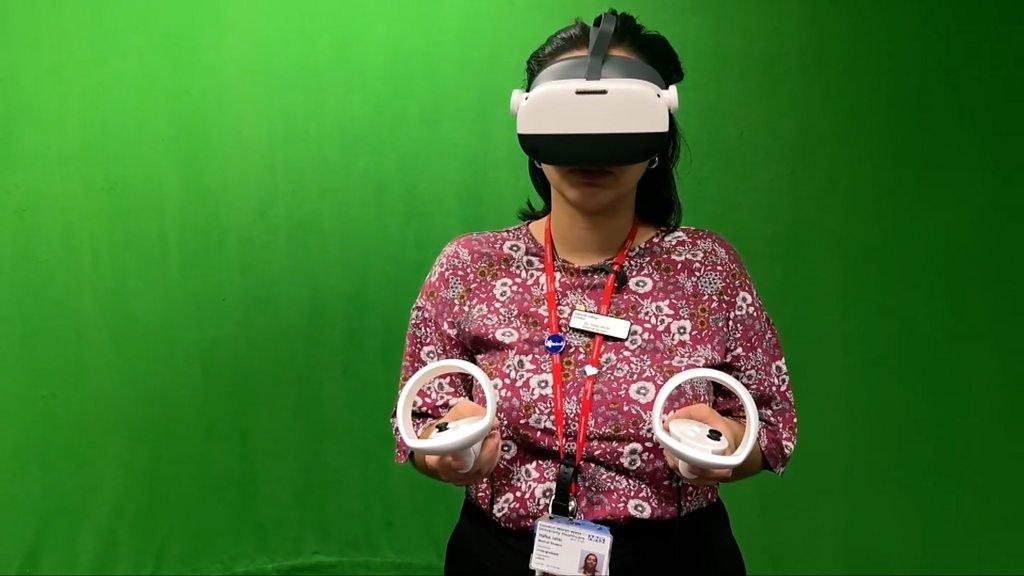Virtual reality helps NHS doctors spot signs of sepsis
- Published
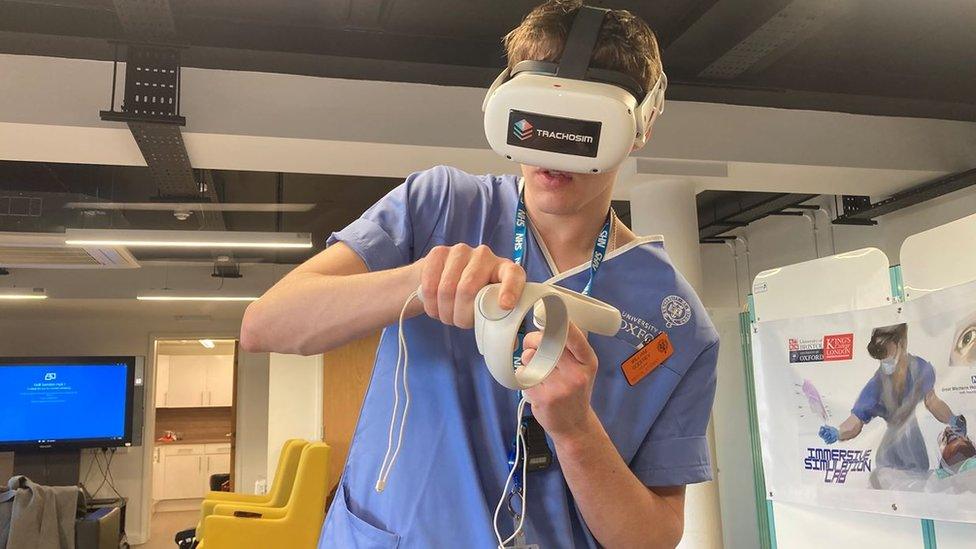
Makers of the technology aim to create a realistic experience of treating patients
Hospital staff and students are being taught how to spot symptoms of sepsis by using virtual reality technology.
Doctors at the Great Western Hospitals NHS Foundation Trust have partnered with training platform Goggleminds on the project.
Immersive headsets are used to develop training scenarios which simulate treating patients with sepsis.
"Training which sticks in the mind, saves lives," said Dr Ron Daniels, founder of the UK Sepsis Trust.
Sepsis, external is a condition which develops when the immune system overreacts to an infection and begins to damage the body's own tissues and organs.
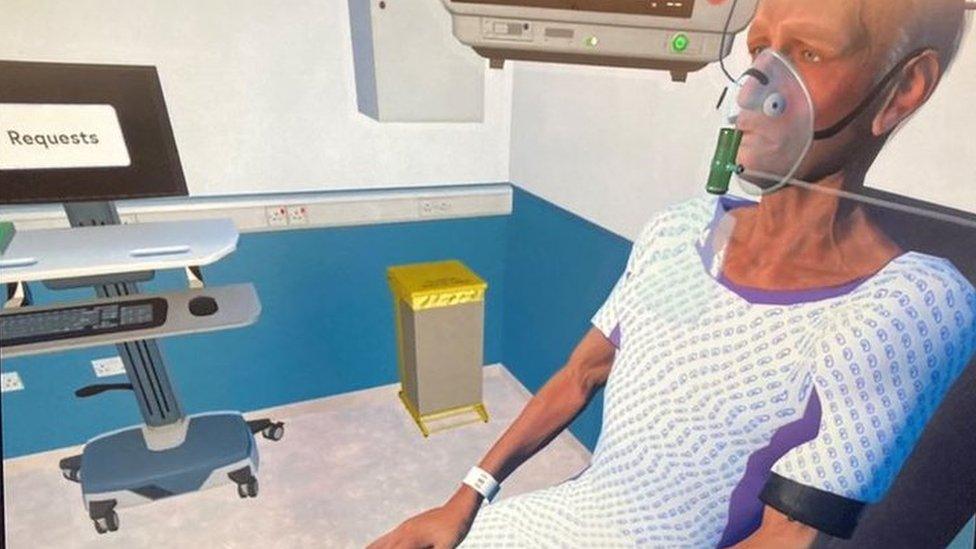
Sepsis claims 48,000 lives per year, many of these deaths are preventable if symptoms are spotted early
"The challenge facing health professionals working in a pressured NHS environment is that it can be very difficult to spot," said Dr Daniels.
The technology will enable more doctors to be trained outside hospital training rooms and in smaller numbers, with the aim of increasing efficiency.
'Life and death'
It draws on research from the University of Bath into how virtual reality (VR) can provide healthcare students with engaging learning.
Prof Richard Joiner from the university's Department of Psychology said: "Sepsis and anaphylaxis are major challenges in healthcare settings, and how frontline medical teams respond can mean the difference between life and death.
"This new VR simulation addresses this challenge by enabling doctors to train experientially in a safe and realistic environment, without endangering patients."
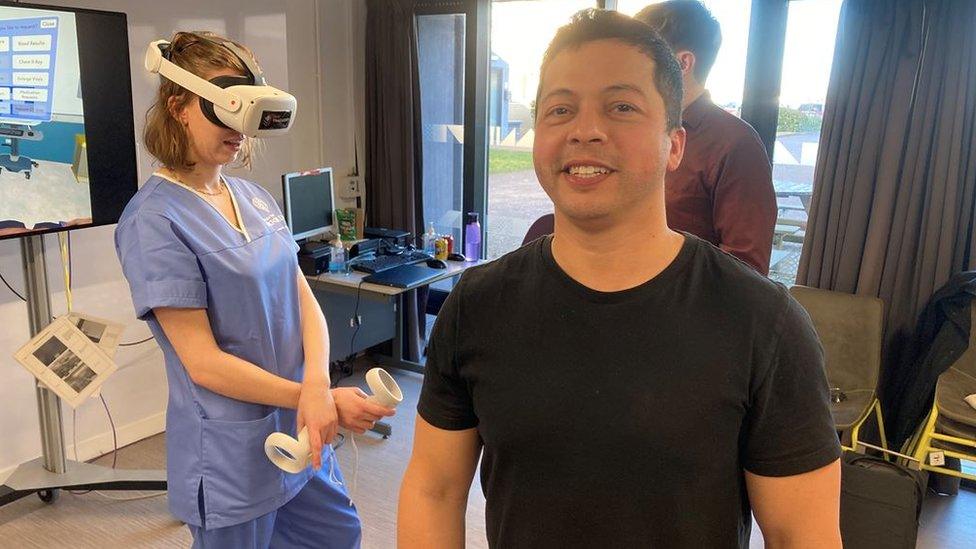
Mr Naji launched Goggleminds after working in the NHS and seeing the difficulty of training the medical workforce "first-hand"
Aziz Naji, CEO and founder of Goggleminds, said the technology could be used for simulating all areas of medicine as it developed.
"We really see this as an international technology that everybody can benefit from," he added.

Follow BBC West on Facebook, external, X, external and Instagram, external. Send your story ideas to: bristol@bbc.co.uk, external
Related topics
- Published6 December 2021
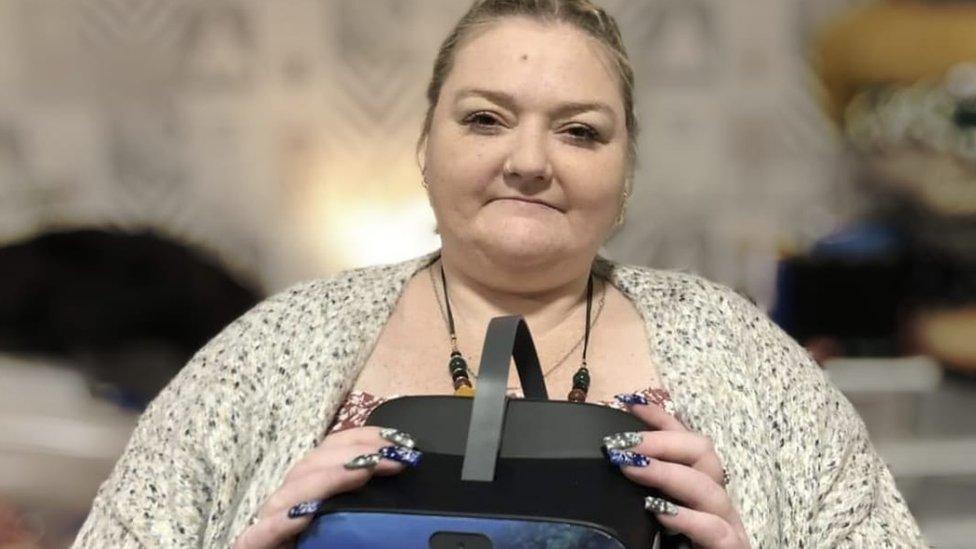
- Published21 December 2023
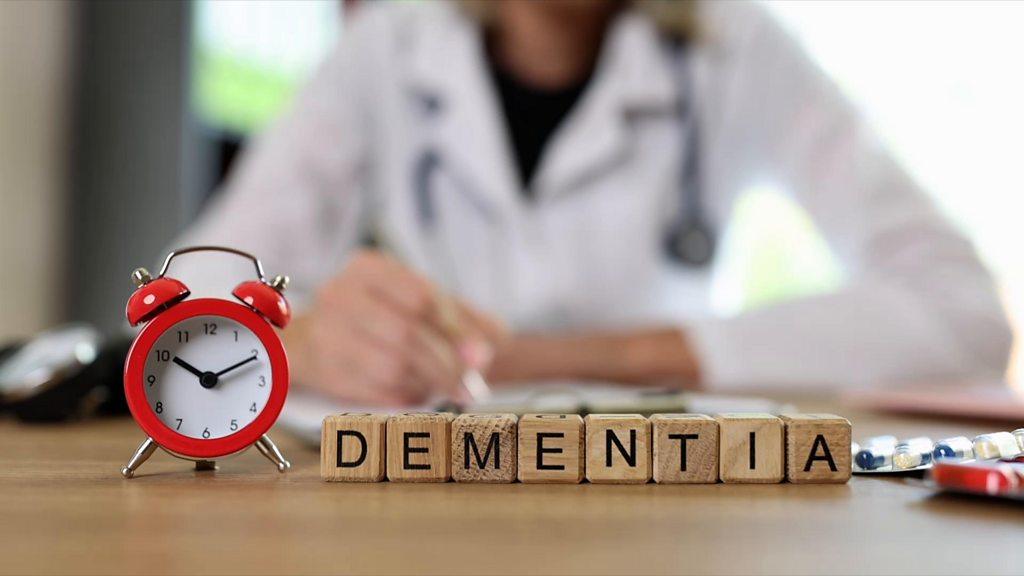
- Published6 December 2022
